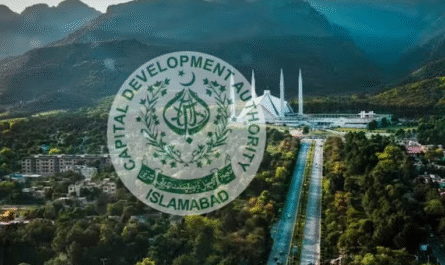‘We May Have Lost Jets, You Have Lost Face – Deal With It’: Former IAF Fighter Pilot Fires Back at Pakistanis
In a fiery rebuttal that’s making waves across strategic and defense circles, a former Indian Air Force (IAF) fighter pilot has issued a sharp message to Pakistani commentators and defense analysts still trying to claim victory in the aftermath of recent aerial skirmishes and geopolitical narratives. His statement? “We may have lost jets, you have lost face – deal with it.”
The blunt remark has sparked debate not just about air combat and military losses, but also about national pride, perception, and the realities of modern warfare. It’s a reminder that in the world of military conflict, facts may be contested—but perception often shapes victory.
Context: The Ongoing Airpower Rivalry
India and Pakistan have long shared a tense, conflict-prone border, with their air forces often acting as the most visible symbols of national strength and retaliation. The most high-profile confrontation in recent memory occurred in February 2019, when Indian jets crossed into Pakistani territory in response to the Pulwama terror attack. What followed was a rare aerial engagement between two nuclear-armed neighbors.
Pakistan claimed it shot down an Indian MiG-21 and captured pilot Wing Commander Abhinandan Varthaman, who was later released. India, in turn, claimed to have downed a Pakistani F-16—though Islamabad denied this.
To this day, both sides continue to assert their own version of events. But amid this long-standing dispute, the former IAF pilot’s recent comments have reignited the debate—not with new evidence, but with bold, unflinching honesty.
A Fighter Pilot’s Perspective: What Really Matters
Speaking on a podcast featuring defense veterans and analysts, the ex-IAF pilot, who flew combat sorties during his service, stated:
“Yes, we lost a MiG-21. That’s a part of war. But our objective was clear: retaliate, neutralize a terror hub, and send a message. We achieved that. And the world stood with us. Pakistan’s narrative was about tactical retaliation. Ours was strategic deterrence.”
He continued:
“In war, you can lose aircraft, but what matters is the political and psychological impact. After Balakot, Pakistan was on the defensive. India controlled the narrative. Their entire military establishment scrambled. That’s a loss of face on the global stage, and no number of F-16 flyovers can erase that.”
The War of Narratives
His comments tap into something often ignored in military analysis: wars aren’t won by hardware alone—they’re won by strategy, messaging, and global perception. India’s airstrike in Balakot marked the first time since 1971 that Indian fighter jets crossed the Line of Control (LoC). That bold step, coupled with immediate diplomatic backing from major powers, turned it into a strategic victory, even if the technical scoreboard of aerial losses was debated.
The former pilot pointed out:
“We took the fight to the enemy. That hasn’t happened in decades. That’s not just about crossing a border—it’s about shifting the rules of engagement.”
To Pakistan: “Deal With It”
The quote that’s grabbing headlines—”We may have lost jets, you have lost face—deal with it”—was delivered not with arrogance, but with conviction. The pilot explained that the true cost of modern conflict is often not just military losses, but global standing.
He added:
“The moment you start using air power to protect non-state actors, you lose credibility. India acted against terror. Pakistan reacted to protect it. That’s the difference—and the world noticed.”
A Bigger Lesson: Technology Doesn’t Guarantee Supremacy
Pakistan’s repeated references to their use of F-16s—fighter jets provided by the United States—were also dismissed by the veteran pilot.
“You can have advanced jets. But what counts is how you use them. India used old MiG-21s with guts and skill. That says something. It’s not always about platforms—it’s about intent, training, and mission clarity.”
This sentiment is echoed by many military strategists: aircraft and weaponry are only as effective as the doctrine and people behind them.
Conclusion: Pride, Power, and Perspective
The former IAF pilot’s comments are more than just a nationalistic jab—they are a call for strategic clarity. In an era where military confrontations can be followed instantly by social media wars and misinformation, nations must fight not just for airspace, but for credibility.
India’s decision to strike first and openly own it changed the rules of engagement. Pakistan’s tactical response, while perhaps satisfying on a surface level, didn’t shift the narrative or earn international validation. In the fog of war, it’s not just what you do—it’s how the world sees it.
So, when the pilot says, “We may have lost jets, you have lost face—deal with it,” he’s laying out a simple truth: in today’s geopolitical landscape, symbolism, resolve, and strategic messaging matter as much as missiles.



